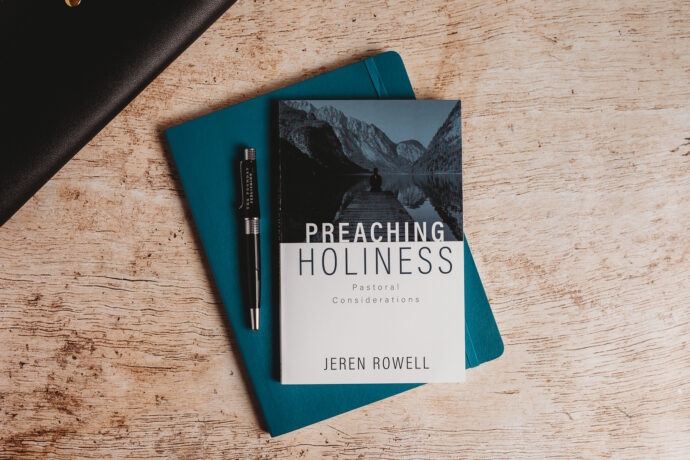The following is an excerpt from the introduction of Preaching Holiness, by Jeren Rowell.
Pastors who identify in the Wesleyan-Holiness tradition may recognize some variation of this exchange:
Parishioner: “We don’t hear holiness preaching anymore.”
Pastor: “What do you mean? I preach holiness every week!”
This can be a frustrating conversation for conscientious pastors who believe they are faithfully preaching holiness of heart and life as proclaimed in the Scriptures and through the witness of the church. I have noticed that pastors can become defensive about this critique in ways that usually do not help the conversation proceed. Perhaps it elicits memories of being grilled by the credentials board on holiness
theology.
So what is really going on here? I am not sure this exchange is about doctrine or even about biblical preaching. I suggest this insider disconnect between parishioner and pastor is about language or, to use a broader term, culture. I use the phrase insider disconnect here because we need to acknowledge the shaping presence of an insider culture that is the Holiness Movement as it gave birth to several denominational expressions, including the Church of the Nazarene. I find this noteworthy because most pastors will testify that they do not experience this insider disconnect with seekers or new Christians who generally know nothing of the language and culture of a holiness church. Therefore, they do not begin with preconceived ideas or expectations about how they are learning to know the fullness of God’s provision for us in holiness of heart and life.
When I have listened carefully to people who say, “Our pastors do not preach holiness anymore,” what I have discovered is that, often, there are certain terms or certain phrases they are not hearing that they have come to associate with holiness preaching. For example, second-blessing holiness is a phrase that at one time was ubiquitous and well loved but now brings puzzled expressions to the faces of new generations of holiness people. The absence of that once-familiar language is viewed by some as a failure to teach, preach, or guide adequately our young people into a vibrant experience of heart holiness. There is certainly serious responsibility to be accepted all around in this regard.
However, in perhaps hundreds of discussions I have engaged with young people preparing for ministry, I have discovered that their puzzled looks do not come because they do not believe in a sanctifying act of God “subsequent to regeneration;”1 rather, they are simply unfamiliar with the particular language and much of the culture from which that belief was born. Additionally, there are others who do know the cultural language but prefer to reach more directly into the language of Scripture in ways that speak less of a dramatic experience and more of being formed in the character of Christ. (Please do not assume that I will argue process against crisis here. Both are involved.)
There is no particular deficit that should be attached to this lack of familiarity with the culture of the American Holiness Movement. Additionally, those of us with much history in the movement must recognize that communicating holiness in changing contexts may require new language to proclaim faithfully the “old, old story.” The point here is simply that the disconnect we sometimes lament between clergy and laity or between generations around the proclamation of holiness doctrine and experience is not typically a disconnect of belief or conviction but one of language and culture.
This disconnect is precisely why the pastoral skill of preaching holiness with clarity and conviction is so important and so much in need of renewal for our time. Vital holiness preaching cannot rise from obligation, cannot occur simply because it is our distinguishing doctrine and ought to be preached. Holiness preaching that moves people, under the work of the Holy Spirit, to know and experience the fullness of God’s provision for us in Christ Jesus must rise from the preacher’s passionate and intimate personal knowledge of the love of God that saves and sanctifies, forming us more and more into the image of the Lord Jesus.
 In Preaching Holiness, Rowell connects the what and the how of holiness preaching with the who of the preacher’s own lived experience of holy transformation. Written for both young and seasoned pastors in a variety of contexts, Preaching Holiness will challenge and inspire you to preach from a heart compelled by authentic love and a deep desire for the people under your spiritual care to experience the life-transforming power of God’s perfect love in Christ.
In Preaching Holiness, Rowell connects the what and the how of holiness preaching with the who of the preacher’s own lived experience of holy transformation. Written for both young and seasoned pastors in a variety of contexts, Preaching Holiness will challenge and inspire you to preach from a heart compelled by authentic love and a deep desire for the people under your spiritual care to experience the life-transforming power of God’s perfect love in Christ.





0 Comments